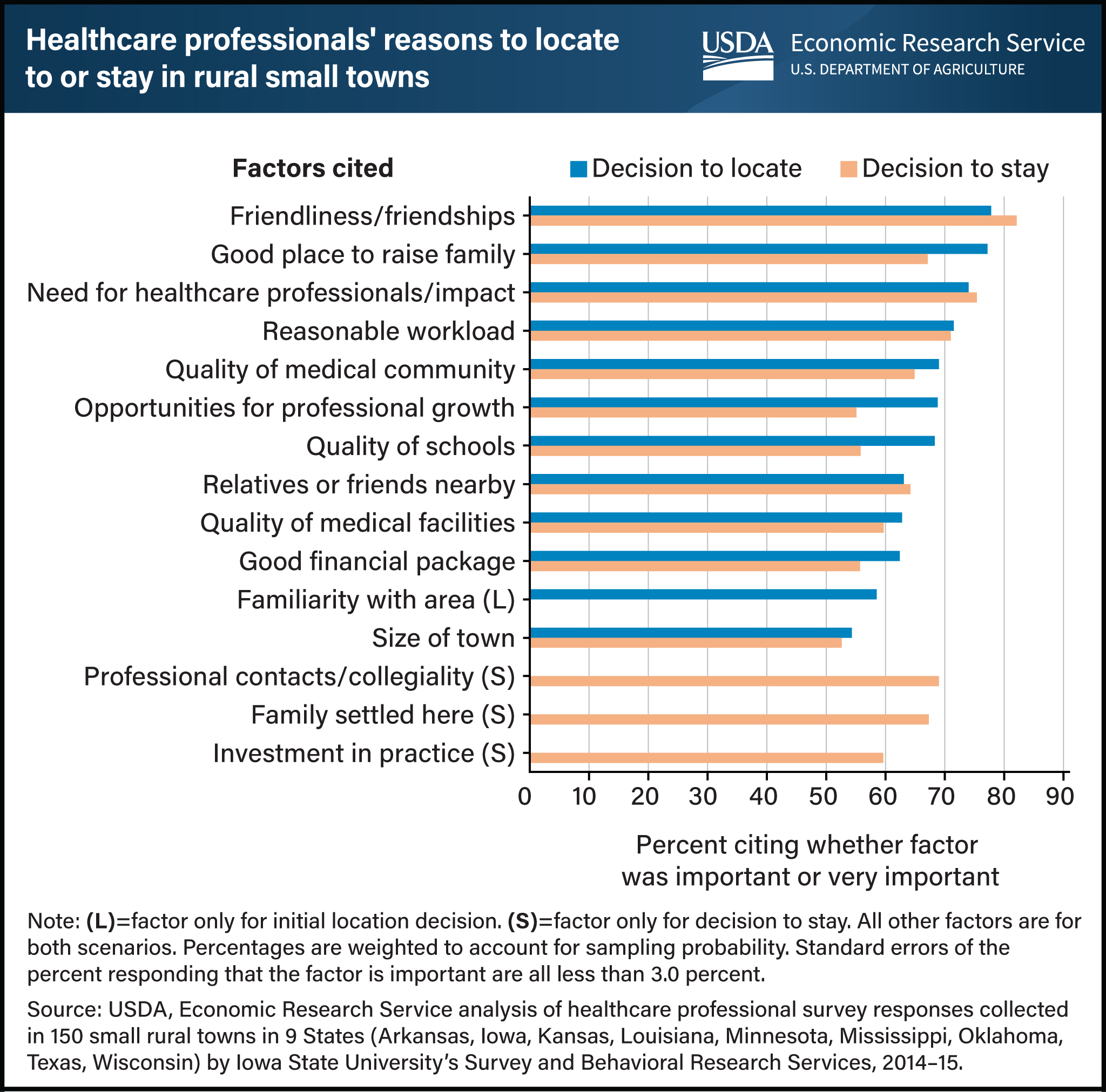Social connections drive healthcare professionals to locate to and stay in rural towns
- by John Pender
- 6/12/2023

The availability of healthcare professionals in rural areas lags that of urban areas, partly because of difficulties in recruiting and retaining healthcare professionals. When choosing rural locations to practice, healthcare professionals (physicians, nurse practitioners, physician assistants, certified nurse midwives, and dentists) most often cite social aspects, such as the friendliness of the town, as an important factor in their decision, according to a survey administered by researchers at USDA, Economic Research Service (ERS) and Iowa State University. Similar factors come into play when these professionals choose to stay in their rural small towns. Other factors that reflect the importance of social relationships included being a good place to raise family, having relatives or friends living nearby, familiarity with the area (for the initial location decision), the quality of professional contacts and collegiality among local healthcare professionals (investigated only for the decision to stay), and if the professional’s family was settled in the town (also only investigated for the decision to stay). Other factors, such as the quality of the medical community, the quality of schools, and opportunities for professional growth also were cited as important. This chart appears in the ERS report Linkages Between Rural Community Capitals and Healthcare Provision: A Survey of Small Rural Towns in Three U.S. Regions, published in March 2023, as well as the Amber Waves article Healthcare Professionals Seek Social Connections When Moving to Rural Towns, published in May 2023


